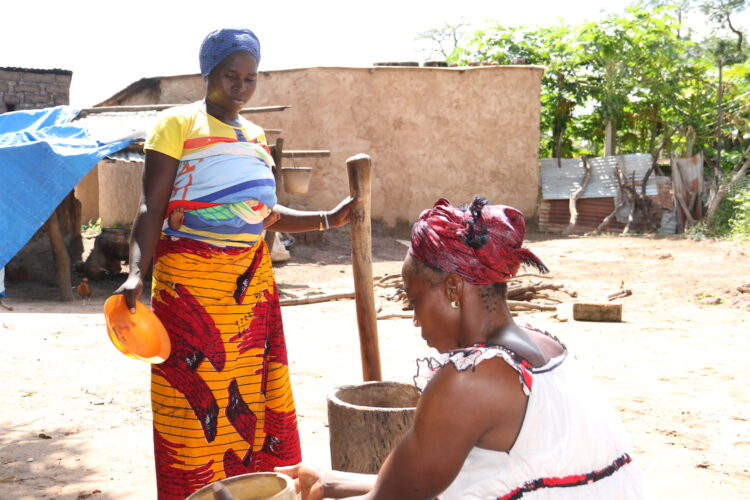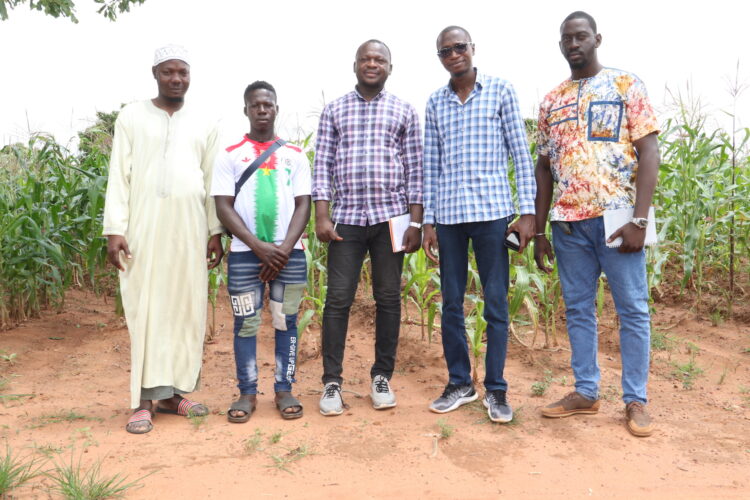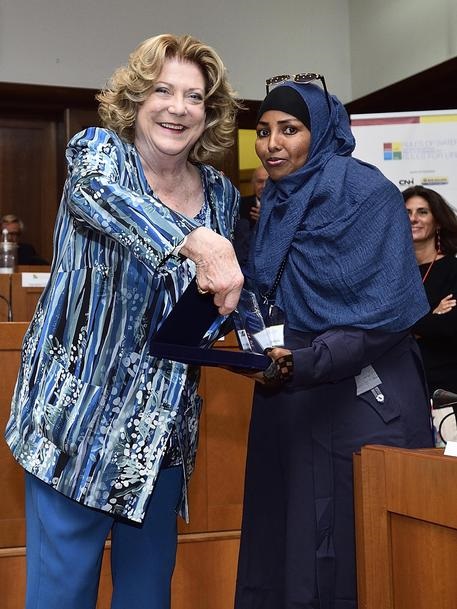Income-generating activities as means of strengthening social cohesion
As part of its peacebuilding mission, Interpeace initiated, with the technical and financial support of the PATRIP Foundation, the Kreditanstalt für Wiederaufbau (KFW), Germany and Denmark, the “Brique par brick: strengthening social cohesion and preventing conflicts on the Mali-Burkina Faso border”. This initiative aims to promote the economic, political and social stabilization and resilience of communities living in fragile regions, particularly along the borders between Mali and Burkina Faso, and to promote local conflict resolution and prevention of violent extremism. To this end, Interpeace has developed a system to support the empowerment of women and young people.
The security crisis and community conflicts in the Sahel call for a synergy of actions by States, development partners and community organizations with the aim of reinstating or consolidating social cohesion and living together. Echoing the urgency inherent to this situation in the Mali-Burkina Faso border strip, Interpeace has developed, with the support of the PATRIP Foundation, the project “Brick by brick: strengthening social cohesion and preventing conflicts at the border Mali-Burkina Faso”. This initiative was preceded by a first phase which brought to the fore, in a participatory manner, the conflict dynamics of the border area as well as the responses to be addressed.
Among the proposed avenues, the development of income-generating activities with an environmental dimension stands out, the objective of which is to promote the empowerment of vulnerable populations, particularly women and young people. This approach helps to reduce the sources of social tension around the exploitation of natural resources.
In view of the community dimension of the activities and for issues linked to local ownership and the sustainability of the project, support for income-generating activities was carried out with the support of local organizations both in Mali and in Burkina Faso. Faso. These include Esther Vision from Burkina Faso and the NGO Action for the Development of Local Initiatives (ADILO) from Mali.

The support system for income-generating activities was developed in three stages. After a study to identify and popularize green jobs, sixty women and young people were chosen and trained in livestock breeding, cereal production, the processing of non-wood forest products and even beekeeping. The participants followed a participatory and inclusive process and according to criteria of vulnerability, age, gender and residence. At the end of the training, they were given installation and start-up kits. “I received training in beekeeping, then I was provided with production equipment. Thanks to this, I now have a profitable activity and I have acquired new knowledge about harvesting and marketing honey,” says Mamadou Traoré, a participant from Koloko, Burkina Faso.
In addition, the income-generating activities promoted launch different employment prospects with the aim of establishing alternatives to activities linked to the exploitation of natural resources which is the subject of tensions in the project intervention area. “Thanks to the training, I received skills that allow me to improve my productivity, conservation and marketing of soumbala. Today, we make more profits,” says Odette Sanou, a participant and soumbala producer from Koloko, Burkina Faso.
From comments collected from young people and women, it appears that these alternatives developed have made it possible to reduce competition around the exploitation of natural resources. Conflicts on this issue have therefore diminished. Indeed, all the participants recognized that before the project intervention, women derived most of their income from the exploitation of non-timber forest products: shea and néré among others. The resulting competition constituted a real source of daily conflicts. These often transcend families to involve entire villages.
Today, the promotion of income-generating activities has not only reduced competition around these activities, but has also allowed women to have other perspectives, considerably reducing conflicts linked to the exploitation of natural resources. Wassa Sanogo, a participant residing in Hermakono, Mali, stated that: “since I moved towards the breeding of small ruminants, I get along better with my co-wives and the other women who process and sell the shea’s nuts.
Also, difficulties in accessing land have exacerbated unemployment and precariousness among young people. This situation exposes them to the alternatives proposed by the armed groups present in the area. Support for carrying out income-generating activities is, from their point of view, likely to increase their empowerment and strengthen their resilience in the face of recruitment attempts by armed groups. Drissa Traoré, a participant residing in Hermakono, Mali, maintained that “thanks to the training, I was able to acquire farming techniques which allowed me to cultivate corn on one hectare and the harvests look good. I think that if all young people had this chance, terrorist groups would not have been able to enlist some and we would be at peace”.
Ultimately, if income-generating activities are primarily intended to support the empowerment of women and young people, they contribute to reducing competition around the exploitation of natural resources and strengthening their resilience. They therefore help prevent conflicts and strengthen social cohesion. This is why, for Interpeace and its partners, support for these activities as means of subsistence today constitute one of the alternatives for responding to these challenges in that African region.

